My Uncles Were Men For All Seasons.
What I learned from them was so much more than life lessons.
Mark Raynes Roberts
I turned 64 yesterday (like The Beatles song).
Not to be morbid but I never thought I would make it this far, having lost my father when he was just 53. I’m not joking when I say this: I had real trepidation at hitting that number and feel appreciative to still be kicking!
Sixty-four seemed ancient when you’re in your teens - not so much now! - but I’m pleased to say I’ve arrived at this new pinnacle albeit not totally unscathed. It’s made me think a lot about my three uncles, who were very influential in my life before I came to Canada. They were very different personalities who quietly passed on their wisdom and encouragement. What they did have in common was being great communicators.
You know what I mean - the social skills and values to navigate life.
In this new dystopian Trump world, where morality, honesty and empathy appear to have little value, my three uncles were everything he and his administration are not.
It goes without saying that my mother was the guiding light during my childhood. Her selflessness knew no bounds, encouraging me when the time came to seek new horizons in Canada without placing any sense of guilt on my decision to leave England. The years of looking after my father on a kidney dialysis machine at home had been challenging for all the family to say the least. We all inwardly knew his passing came at the right time including him. My understanding of life and death was made vivid during those five years of his illness, the catalyst to becoming an artist.
My Uncle Bob had been a Liaison Officer in the Royal Artillery and part of Gold platoon in the D-Day landings at Arromanches, and involved in the liberation of Bergen-Belsen concentration camp.
During my college days (1977 - 1982), my mother and I moved from simply having a parent - child relationship to becoming friends before I left for Canada. Having lost my father at 15, she felt that I would benefit from having some male company. So suggested I join the local hockey and tennis clubs, as I was a total sports jock at the time. I did, and to this day have remained great friends with many of my old hockey and tennis pals from that era.
But it was my three worldly uncles who I now realize provided some of the best words of wisdom - insights into what life could offer and the ‘common man’ approach to respecting others. My Uncle Bob, Uncle Brian and Uncle Leon grounded me.
Uncle Bob was a pipe smoker. My earliest recollections are of him cleaning and tapping his pipe on the side of his ash tray. It seemed like he did this more than smoke it at times, perhaps as a therapeutic comfort, puffing only occasionally and telling stories. He was a wonderful story teller. I loved to play “shut the box’ (a old sailor’s board game) with him, the sweet smell of his St. Bruno tobacco a constant calming companion.
Bob was my mother’s brother. They had grown up with their two other siblings, Ron and Rene, in Princes Gate Mews, Kensington. Not long after the war, Bob had married my Auntie Theo, living in Kidderminster initially, before eventually moving south to Chislehurst in Kent. Bob had joined British Steel after the war. Becoming a regular commuter into the city during the week, and enjoying games of golf on the weekends with friends at Chislehurst Golf Club, eventually becoming Club Captain.
Bob never spoke in detail of his war experiences as many men didn’t. Choosing to forget the past, treasure the present and live life to the full. The modus operandi back then was simply to get on with it. Bob’s career advanced rapidly: becoming a Director of British Steel. He traveled to communist China in the early 60’s when it was still a very closed society, as well as to Africa, South America, Russia, Asia and Australia developing business all over the world. He even hosted HRH Princess Alexandra at the opening of one of their new British Steel facilities, but never spoke about business preferring to tell a joke or swing a golf club.
Bob’s mischievous sense of humor came honestly by way of his childhood friends Peter and James Grafton, who were twins. Jimmy as he was known by his friends had received the Military Cross for bravery during World War II, and on demobilization, had returned to London to manage the family pub ‘Graftons’ at 2 Strutton Ground. (still located there) He began moonlighting as a part-time scriptwriter as the pub served as the meeting place for many aspiring comedians many of whom were ex-serviceman trying to make sense of their war-time exploits. These included Spike Milligan, (who lived above the pub for a short time) Harry Secombe, Peter Sellers and Michael Bentine, and other comedians like Terry Thomas, Tony Hancock and Beryl Reid. It wasn’t long before Jimmy was hired by the BBC as script editor for their new radio programme ‘The Goon Show.’
I definitely think being in the Grafton boys orbit rubbed off on my Uncle Bob in many ways. As he always loved to find levity in life. When Bob died, his life-long friend Peter Grafton spoke at his funeral at St. Nicholas Church in Sevenoaks, Kent.
When Bob and Theo visited us to celebrate my 21st birthday in Four Oaks. We had gone to a local pub for supper and I had bumped into an old school friend I’d known from elementary school. Whereas I had just finished my training at jewelry school, he had left school early to join the British Parachute Regiment at age 17. He had just returned from a tour in Belfast, Northern Ireland, and was obviously suffering from bad nerves a result I imagine of potentially being shot by a sniper while patrolling the dangerous streets in the Bogside of Derry during the height of “The Troubles.” When I returned to our table, I told Bob and he immediately got up and went over to reassure him in a way only another soldier could. I’ve never forgotten my friend’s reaction and appreciation for Bob’s understanding.
“I thought I was poor when I had no shoes until I met a man who had no feet.”
Bob and Theo had a wooden plaque in their home with this famous proverb attributed to Helen Keller. I never fully grasped its meaning as a boy, but it has resonated as I’ve got older.
When I stayed with them in Chislehurst, Bob and I would often walk their Irish setter ‘Scheli’ across the golf course. He would give me little pointers on the etiquette of the game, how the ball would run on the green; to the importance of remaining quiet when someone was addressing the ball on tee or green. I caddied a round for him one Sunday, his golf bag seemed bigger than me at the time. They were valuable lessons in learning respect and the traditions of the game.
More tapping of the pipe and puffing would ensue on our return home. The BBC coverage of the British Open would have us glued to the TV, with Bob pointing out how golf was the only sport where every player was applauded (this was the era of Nicholas, Palmer, Miller, Trevino and Watson) a sign of good sportsmanship.
My Uncle Bob with his sister (my mother) and his eldest daughter Vicki in Sutton Park. It was on one of these sojourns to North Wales that we played Colwyn Bay golf course together. I can remember his childlike glee when I hit a 7 iron over a huge tree and within a few feet of the the pin. He genuinely seemed more excited than I was!
Bob died in October 1982, he was 67, only 6 months after I had left for Canada. It was such a shame that he didn’t get to enjoy the golden years of his retirement. My Auntie Theo and eldest daughter Vicki, have both since passed away sadly, but pleased to say I’m very close to Sally, their youngest daughter. (my cousin) Sally visited us only last year with her husband Chester, and I’m proud to say I’m Godfather to their son Robert “Bobby” who is named after his grandfather, the man we all miss.
Going out with my Uncle Brian in Manchester was always a gastronomic delight. He was a raconteur who knew everyone from the owners to the chefs and in some cases the cleaners!
I wonder how many of you have been guided by relatives after losing a parent? In some cases, they unknowingly step into the breach of providing the valuable life lessons we all need to grow.
My Uncle Brian was my father’s cousin whose family lived in Manchester. His father, Joseph “Joe” G. Heap, was something of a legend in the insurance business. He was Chairman and Managing Director of Wm. Heap & Sons Ltd. His forty-year career had provided a very privileged lifestyle. He was also a talented cricket batsman, playing for Lancashire several times with a top innings of 142!
As one can imagine, my Uncle Brian and his sister Nell (my Godmother) grew up in fortuitous ‘silver spoon’ circumstances. However, Brian was something of a contrarian in that he wasn’t a fan of pretention in people or ostentatious wealth. So even though he continued to run the family insurance firm after his father’s death, he chose to drive an Austin Allegro, a perfectly good car considered by many to be the everyman car of the 1970’s. (much like the late Sam Walton, Founder of Walmart, who famously drove a 1979 Ford F-150) I believe his view on life was by remaining humble and inclusive of everyone including his employees - that it created greater acceptance, mutual respect and an opportunity for open dialogue. It was an invaluable lesson on how to be in the world.
The rivalry between Manchester Utd and Manchester City was palpable in the 1970s, but interestingly Mike Summerbee (City) and George Best (Utd) remained best friends throughout. Bestie was even “best man” at Summberbee’s wedding, although George did joke at the alter it wasn’t too late for Mike to do a runner!
When Manchester Utd became the first English club to win the 1968 European Cup Final against Benfica, (now Champions League) Brian had been very persuasive in directing my allegiance to supporting ‘his’ Utd. So when he invited us up to watch Manchester Utd play Coventry City at Old Trafford in 1970 I was hooked. These were the heady days of Bobby Charlton, George Best and Dennis Law, known in United circles as “the holy trinity!’ (Think Gretzky, Messier and Lemieux.) I was all of nine, and Brian spoilt me rotten, buying what seemed like half the souvenir store for me. My bedroom would later be turned into a shrine of red and white to Utd. I’m still an avid fan to this day, having ridden all the highs and lows over 57 years of support.
Brian’s firm insured both Man Utd and Man City during those years, so consequently knew many of the great players including Sir Bobby and George Best. After the Coventry match (which United had won 2 v 0) we had dinner at the Woodlands Hotel in Altrincham. But what I hadn’t realized was that Brian had also called his neighbor who lived across the road to meet us after dinner as a surprise. So when Mike Summerbee, Man City’s centre forward at the time, drove up in his swanky sky-blue convertible E-Type Jaguar to give me a spin around the block and his autograph, I was thrilled to bits even though he played for City!
That was the guiding principle in Brian: his generosity of spirit. He took the greatest pleasure in seeing his family and friends enjoying themselves always at his expense. Nothing made him happier than sharing a delicious dinner and good conversation. As I got older, I would stay with Brian on my own and we would head to watch Utd play, just the two of us. He was always amused by the colorful banter fans would shout out at the players and opposing fans, and in some ways I think he felt it was a rite of passage for me into manhood. Not sure my mother agreed!
My mother would drive up from the Midlands to pick me up at his home in Bowdon, Cheshire, which usually meant her staying over. Brian loved to tease my mother with an outrageous comment on some current affair, simply to get a rise out of her and a good debate started. I found it amusing. It was like watching a master salmon fisherman casting a fly out, knowing it would be too irresistible not to bite on. Inevitably, my mother would succumb to the bait and we would talk into the wee small hours. Our drive home usually entailing a debrief of the previous night’s discussion.
Brian’s favorite Beatles track was “When I’m Sixty Four” I know this from playing his limited selection of LP’s in his flat. He could usually complete The Times crossword in a matter of minutes and without fanfare, a simple exercise to insure his mind was still bright. What I loved about Brian was how he asked lots of questions, insuring to make whoever he was speaking to comfortable and engaged. Once hooked he would simply step back happy to listen others opinions. He died not long after my arrival in Toronto as well, and still miss those great dinner conversations. But think he’d give watching Utd a miss these days as they’re playing awfully right now!
Godmother Auntie Nell with Uncle Brian and my mother, in Ambleside in the Lake District on our way to visit the great Aunts (my grandmother’s sisters) near Carlisle. We would stop at Crooklands Restaurant on the way home to enjoy their famous banana flambe served at the table.
My Uncle Leon was my father’s brother, growing up in a small village called Llysfaen, close to Colwyn Bay in North Wales. While my father was a man of the land and country, Leon was a man made for the city. He had been in the Royal Air Force during World War II flying in bombers. I’m pretty sure he wasn’t a pilot, so imagine he was a gunner or doing reconnaissance. I always felt Leon could have been cast in a British wartime movie alongside the actors of the day such as Kenneth More, David Niven and John Mills, as Leon was always very suave. Leon had been a good student at school so after the war had moved to London to go into banking which is where he would also meet his future wife.
My Uncle Leon always reminded me of David Niven with his pencil thin moustache. Here he is with my Auntie Romany enjoying themselves at a London banquet sometime in the 1960s.
My earliest recollections of Leon go back to when he got married in Alvechurch, Worcestershire in 1965. I had been asked to be the page boy and it had been a memorable day. After the church service the reception was held under a large marquee, and recall my sister and I enthusiastically overdoing the fruit punch which was made with prunes for some odd reason. It was delicious, but there were serious consequences the next day!
By the late 1960s, Leon and Romany were living in Hornton Court, Kensington, before moving to De Vere Gardens in the early 70s. It was during these years that my grandmother lived with them. One of her weekly treats was enjoying high tea at Derry & Toms, where a Marrakech-styled roof garden surrounded by (if you can believe it) live flamingos and penguins was located. By 1969, the building had been leased to Biba, becoming the flagship store for the popular fashion brand of the day. After my grandmother passed away, and my father had become seriously ill, my sister and I would be sent down to London for extended summer holidays with Leon and Romany. This allowed my mother to take care of my father without us under foot and meant we became part of Leon’s growing family which included James, Timothy and Lucy.
When Leon returned from his day in the city (he was now with National Westminster Bank), we would take a spin around Kensington Gardens in Hyde Park. While during the daytime, Romany would give us a key to the flat and simply allow us to come and go as we pleased. It was liberating to learn independence at age 11 even if by today’s standards it would be frowned upon.
We would hop on a bus or tube first thing and go off to see the crown jewels or some major art collection, a smorgasbord of riches. We would pop into Biba or The Kensington Market to try on the latest pop star fashions, go brass rubbing in the crypt of St. Martins-in-the-Field, and on one occasion, be dragged by my sister to Fortnum & Mason’s to scandalously pay 11p for a glass of milk! (I was horrified, as a pint of milk only cost 7p at the time!) Leon also exposed us to some of the best luxury stores in London, which had a profound affect of me in recognizing the importance of stagecraft in presentation.
It seemed to me Leon had a photographic memory as we drove around the city. He appeared to know everything London had to offer: from where a celebrity lived to who owned certain buildings; where the new hotspots were for the best theatre and restaurants. He was ‘Google’ before ‘Google.’ I assume he had honed these soft skills to develop clients for the bank. It was a kind of magic dust stored in his head, an encyclopedic recall of what, who and how the city ran. It’s interesting what we retain from our childhood experiences, so when I arrived in Toronto at 21, I realized this valuable lesson of becoming knowledgeable of ones surroundings and community.
He would often treat my sister and me and his eldest son, James, to the theatre to see some British farce such as “No Sex Please We’re British” starring Brian Rix, before whisking us off to some fantastic restaurant. On one occasion, we had a 13 course dinner at “The Chinese Lantern” on Thackery St. (around the corner from their flat). It was all a dream for Helen and me, far removed from our normal life of twice weekly kidney dialysis for our father and the constant throbbing machine. So when Tommy Steele (a popular 70’s British actor and singer) walked in and sat down beside us to tuck into his Kung Pao chicken, it was almost too much!
My Uncle Leon and Auntie Romany’s wedding in Alvechurch in 1966, when I was page boy and my sister one of the bridesmaids. I’ve never worn blue velvet pants or patent shoes since!
I believe now that Leon’s generosity in treating us as he did was to open our eyes and to educate our minds to the bigger world. Which it certainly did. My parents simply didn’t have the resources given my father’s health. I believe as my Godfather it gave him pleasure to see us contented knowing how serious his brothers condition was. Thanks to Leon and Romany they made us independent and for that I will always be grateful.
The night my father died in April 1976, my mother had called Leon in the middle of the night to say he should drive up from London as his brother was close to the end. I remember lots of commotion going on outside my bedroom door. At one point, my mother tried to wake me up. But I pretended I was in a deep sleep, not wanting to know the inevitable. It was Leon who stood at the bottom of the stairs the next morning to greet me with the news Dad had died. My mother only reminded me of this story in 2007, the year before she passed away. I had literally buried it in my own subconscious for 30 years. When she brought it up, it all came flooding back. I told her how I had feigned sleep that night.
In the late 70s, Leon was seconded by National Westminster Bank, to Sydney, Australia, becoming the Chief Commissioner for Australasia. He had climbed the corporate ladder and was now enjoying the sunny antipodean lifestyle. During Leon’s tenure there, he was responsible for much of the financing for the development of Sydney harbour. Unfortunately Leon had a heart attack while traveling in New Zealand, and so the family returned to London.
Leon and Romany were at my 21st birthday along with family and friends, and my other Godparents Aunt Nell and Uncle Bob. It was special as I was about to embark on my emigration to Canada the next month. Leon kindly connected me to some of his old London banking friends now living in Toronto, which made my landing that much softer on arrival. I saw Leon one more time in 1984 just before he died, and whenever I return to London, enjoy retracing my childhood steps visiting my mother’s birthplace, and the two flats where Leon and Romany had lived. They are touchstones in my life, which miraculously are around the corner from where Sarah’s parents live.
My 21st Birthday on St. Patrick’s Day 1982, in Four Oaks, Sutton Coldfield, with Godparents Uncle Leon, Aunt Nell and Uncle Bob. Forty one days later, I had emigrated to Canada.
I now find myself at the stage in life where they were when I left for Canada. I’m now a husband, father, grandfather, and Godfather three times over. Time marches on.
I’ve often wondered how I would have turned out had my father lived a longer life. But there’s no point wondering. It is what it is. Life deals us all a hand that includes suffering in some capacity. It’s how we react to these failures and challenges that makes us who we are. The shiny tip of the iceberg never reveals the full story of a person’s life lived.
I will be forever grateful to my three uncles whom I admired, loved, could trust to learn from. They each in their own special way helped make me who I am today.
Would love to hear stories of relatives who have made a difference in your lives.
Best as always. Won’t be long before the hummingbirds return in Chester!
Mark

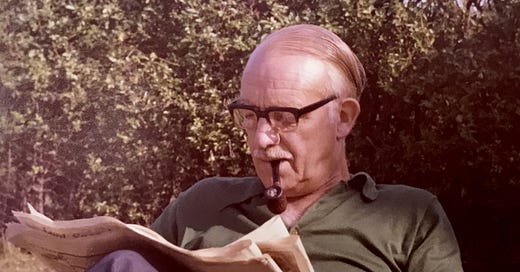



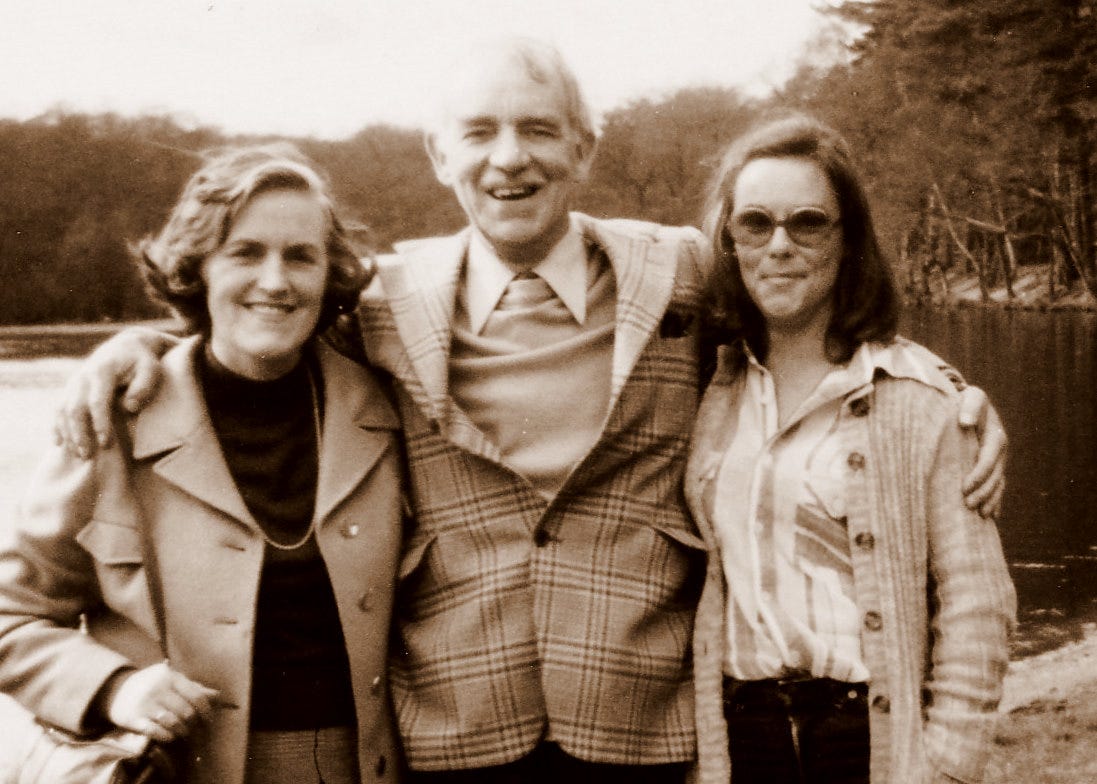
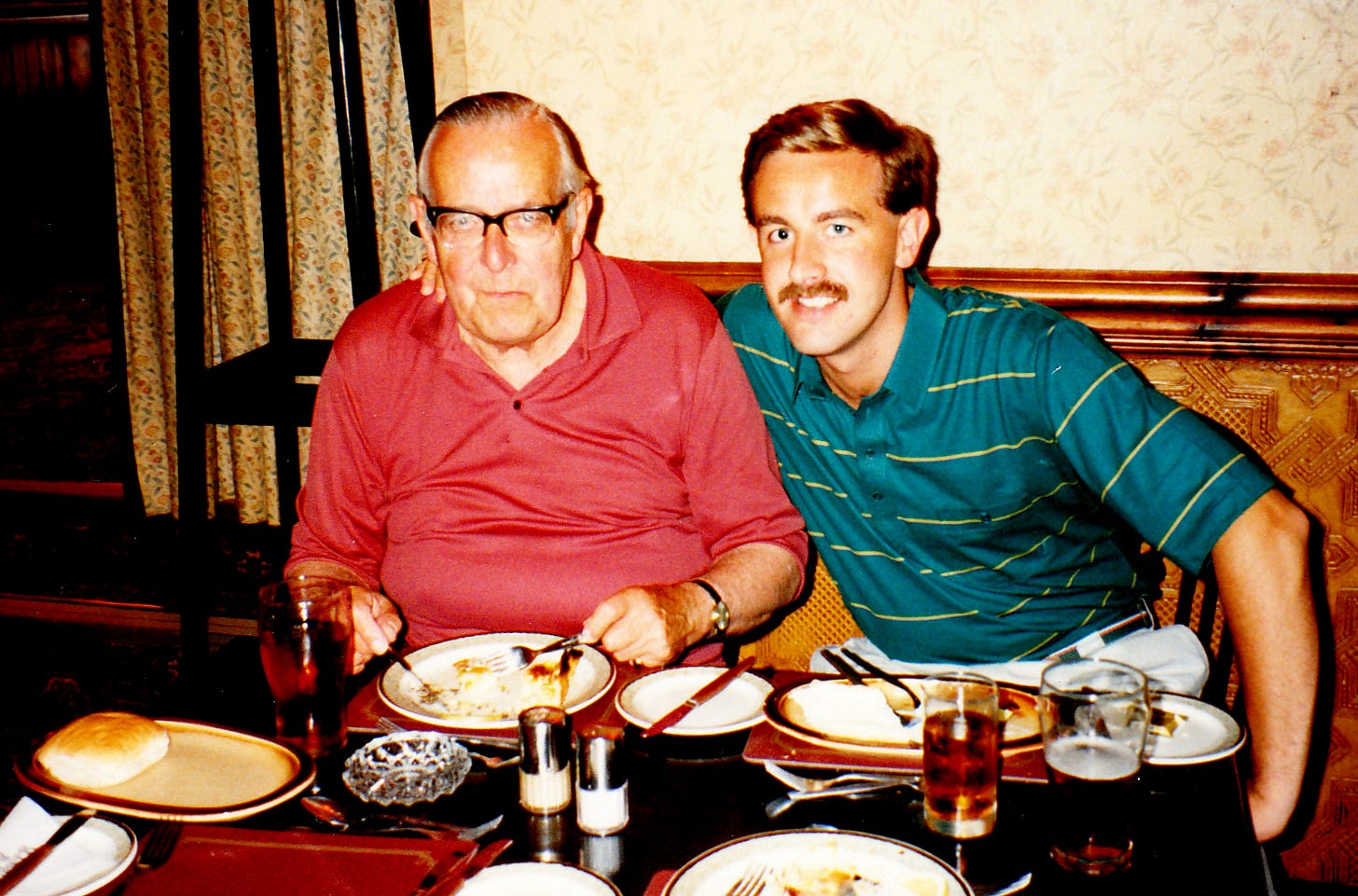
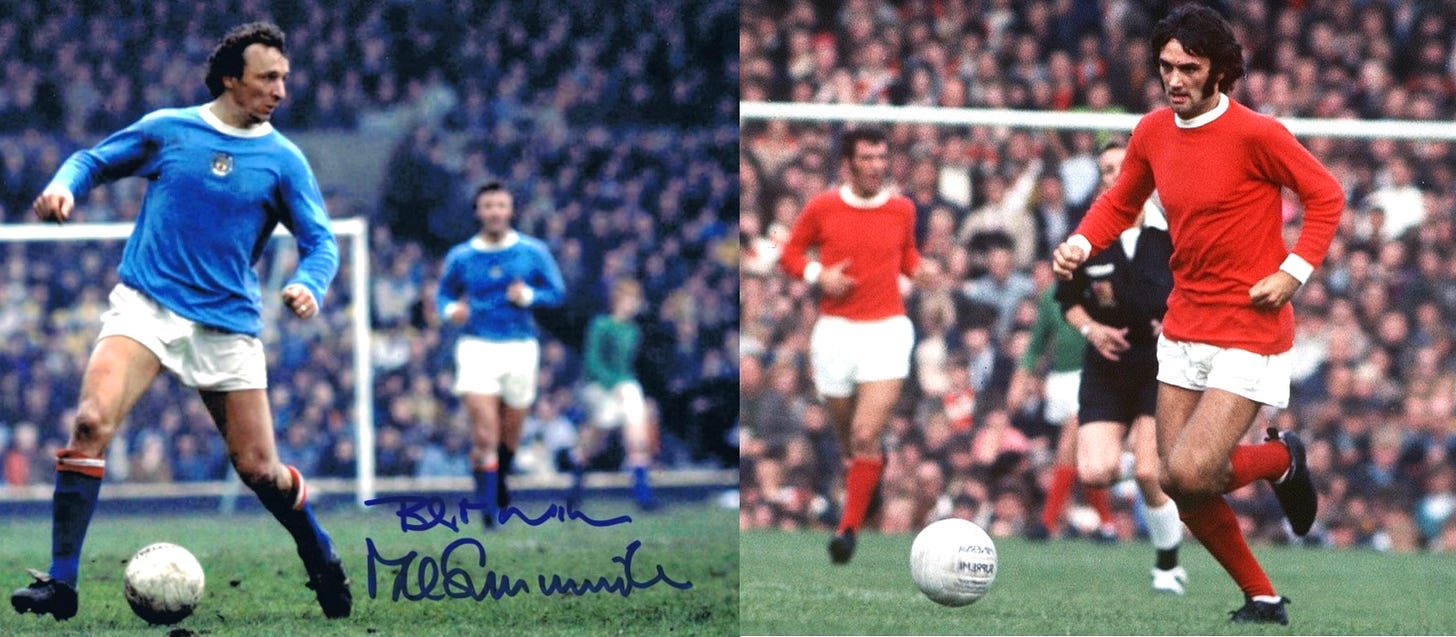
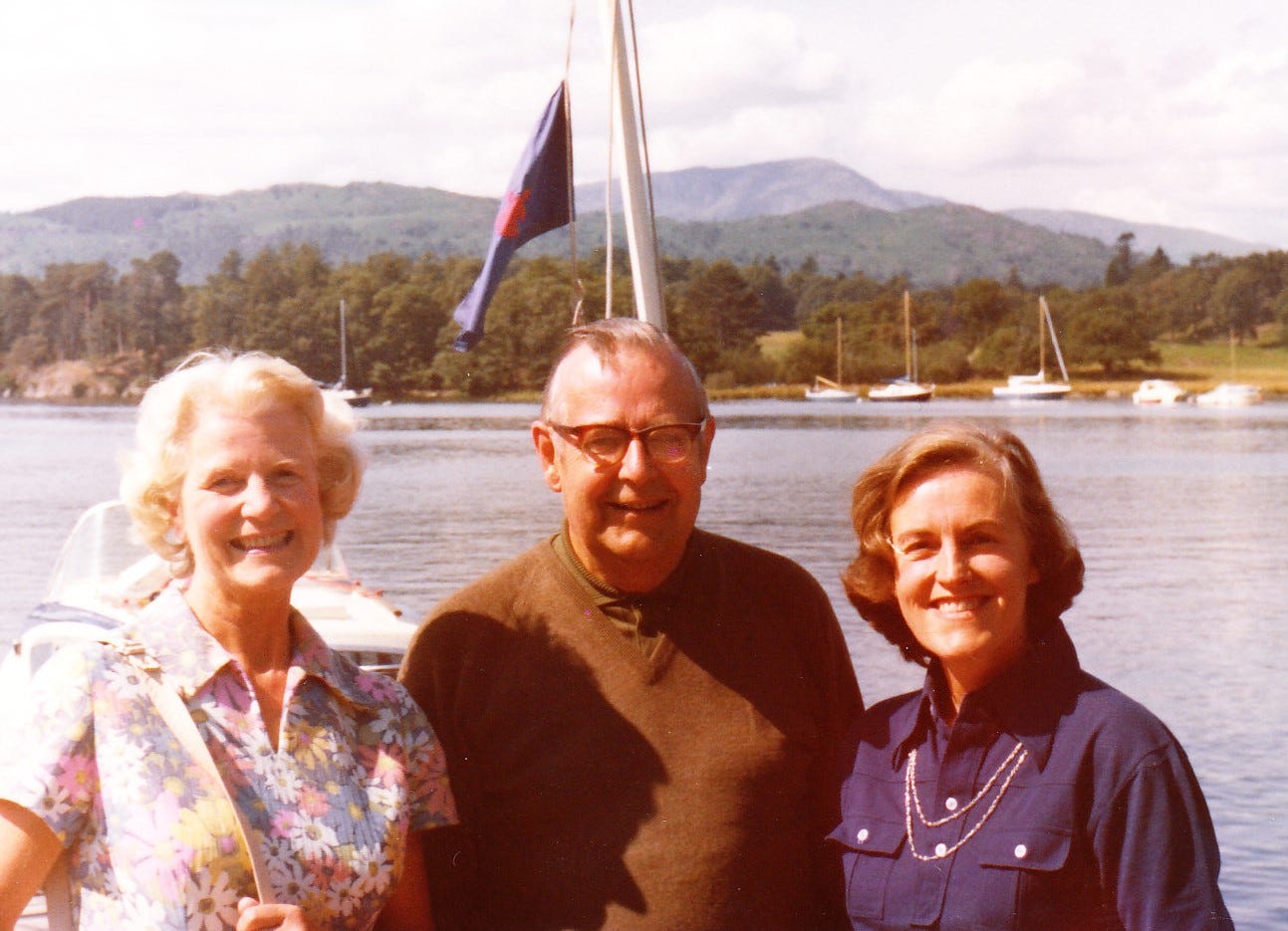
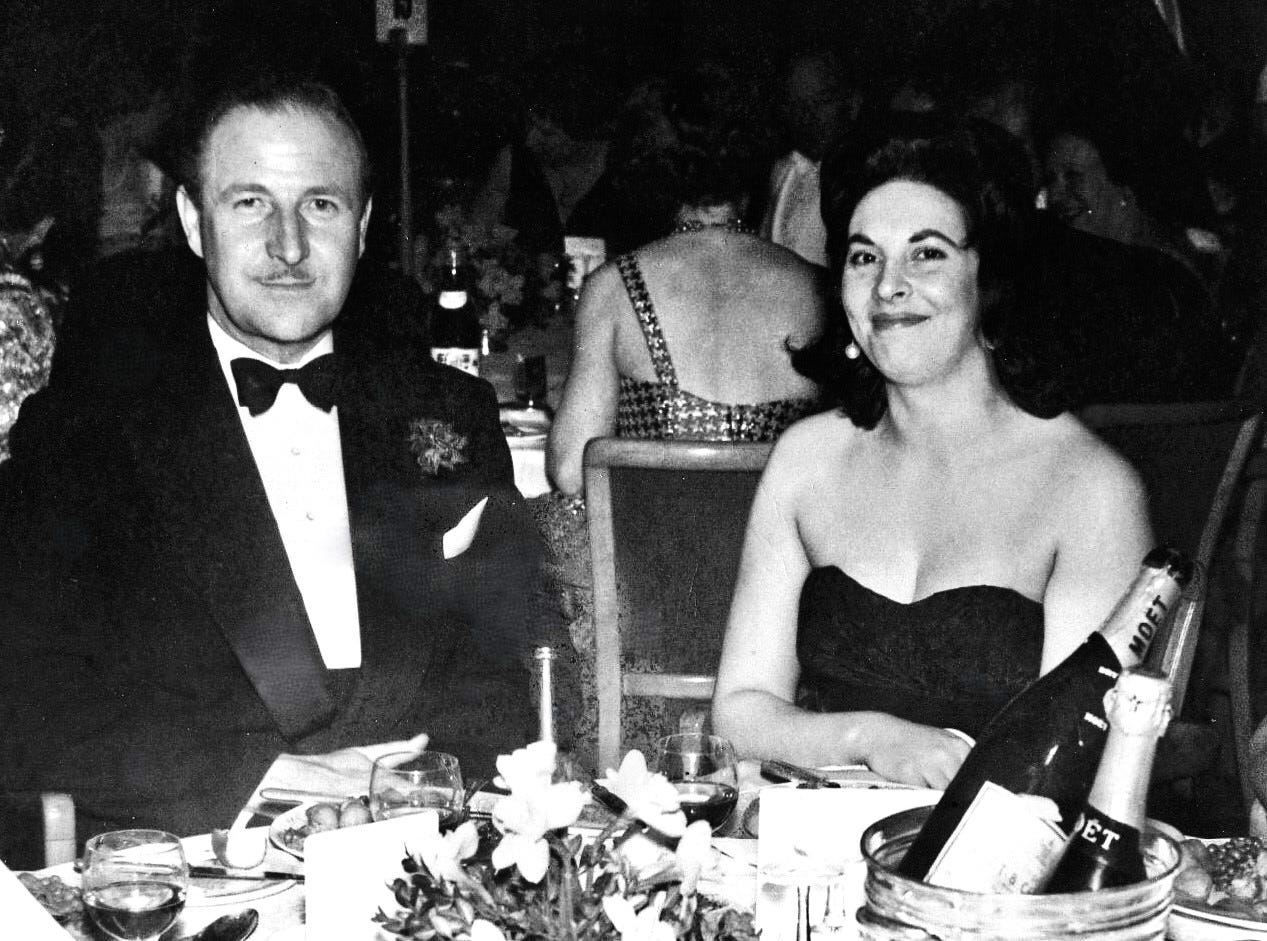
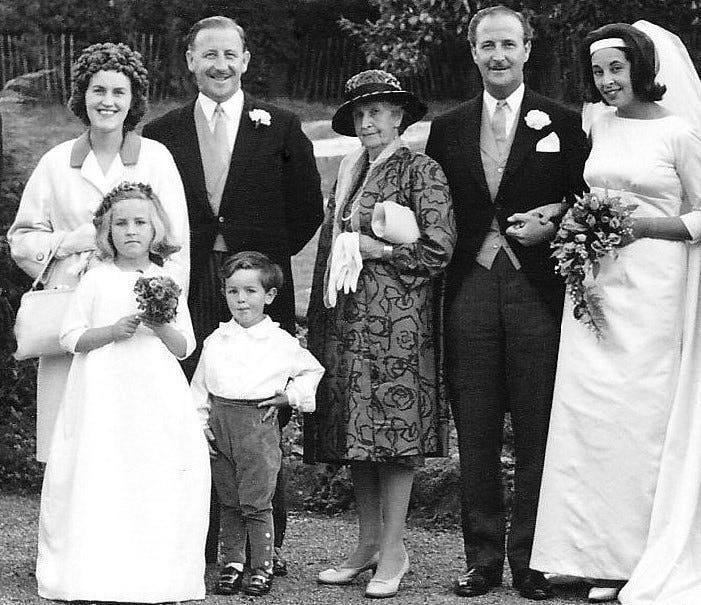
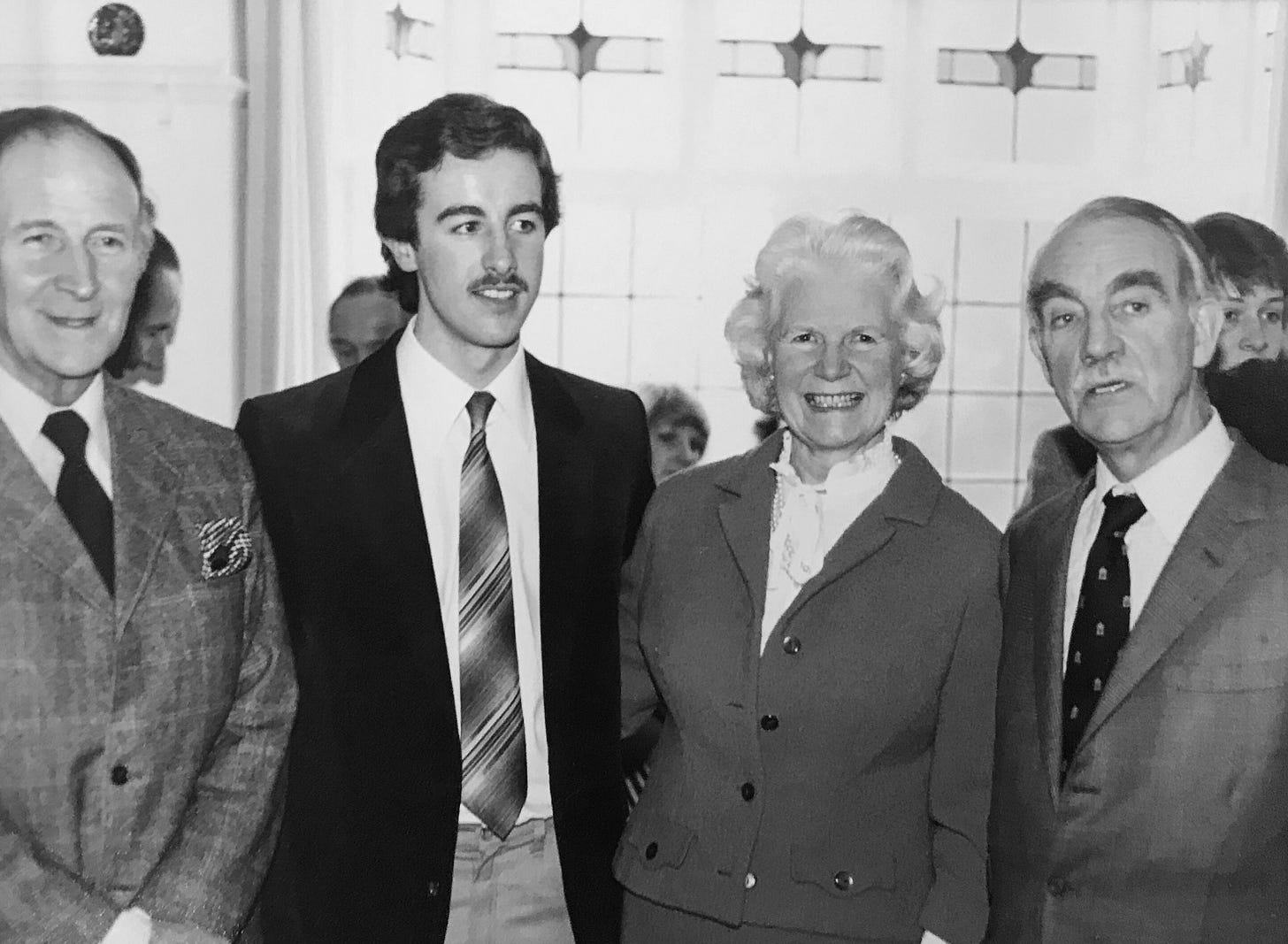
My son (now 37) lost his dad when his dad was 46. My son was just turning 13. He confessed to me several years ago that he is worried about approaching 46. Also, since he’s an only child, and my family has always been both physically and emotionally distant, he doesn’t have relatives to fall back on. I’m it, a responsibility that I have taken very seriously. Not easy, to say the least.